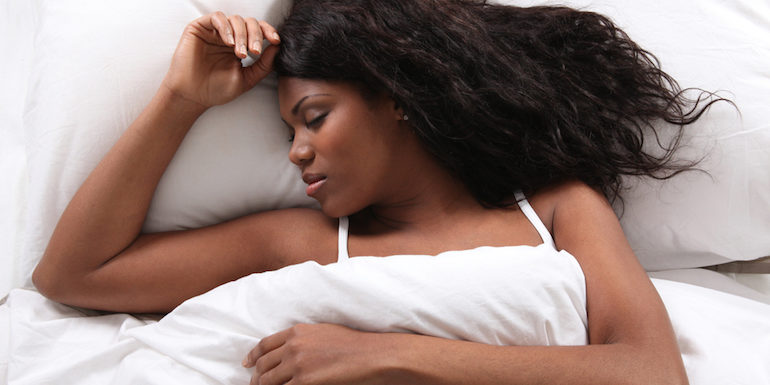Researchers have called insufficient sleep a “public health epidemic.” Here’s how to ensure you’re getting better sleep in order to improve your overall health and pain levels.
Why is getting better sleep so important?
While many people insist that they can get by on five hours of sleep and five cups of coffee, researchers note that people need an average of eight hours of sleep in order to truly feel rested and to perform at their best. As researcher, Dr. Sandhya Kumar, writes, “I would say the importance of sleep is definitely underestimated by the general public.”
Dr. Kumar goes on to suggest that quality of sleep is just as important as the quantity of sleep. Kumar writes about coffee:
“There are people who, for example, say that they can drink coffee and don’t have trouble sleeping, but that’s not true. They may not have trouble falling asleep but the quality of their sleep is not what they need. They don’t have the deep sleep that is the most restful, or they have trouble waking up.”
Kumar goes on to note that alcohol can have the same detrimental effects on sleep quality.
Quality sleep is important, because it can help prevent a number of behavior and health problems. If you’ve ever been cranky after a night of bad sleep, you understand the behavioral part. However, bad sleep can also cause you to:
- Become depressed more easily
- Do poorly at school or work
- Make bad decisions
Poor sleep may also increase a person’s risk for high blood pressure, obesity, and heart disease.
How to start getting better sleep
If you’re worried about the amount of quality of sleep that you’re getting, consider following some of the tips provided over at the Better Sleep Council and the Sleep Education website, with the American Academy of Sleep Medicine. On both websites, they provide advice on dealing with specific sleeping disorders, treatment methods for getting better sleep, and how sleep can affect different groups of people.
The researchers in the study also suggest that you talk to your doctor if you have trouble sleeping. Your primary care physician should be your first stop, but you may be referred to a sleep specialist who can more accurately diagnose specific sleep conditions. Even a few nights of bad sleep should be enough to get you to your doctor. As Dr. Kumar writes:
“Even a relatively short-term difficulty with sleeping can develop into a chronic problem if not addressed, and not sleeping properly can have many other health consequences.”
Do you find that you have trouble sleeping? Are there certain habits that seem to help (or hinder) your sleep? How does it affect your pain levels?


